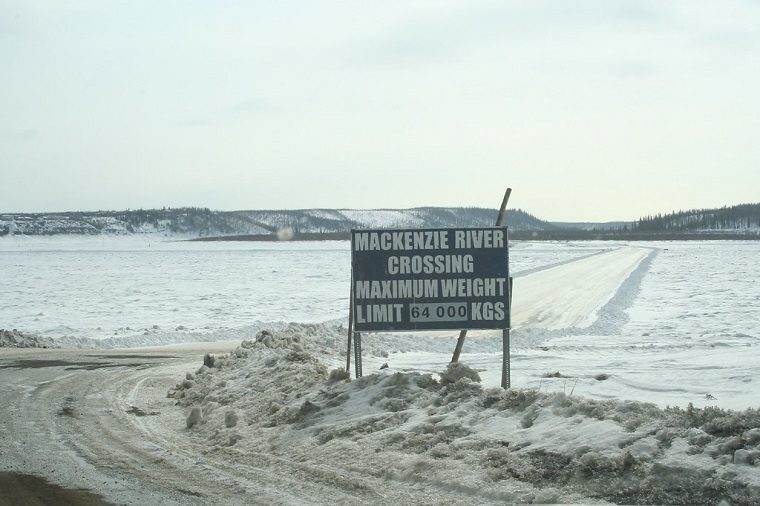
Photo: Hideyuki KAMON under CC BY-SA 2.0
Rapid climate change is threatening a vital transportation network in Canada’s remote Northwest Territories.
During much of the year, many communities in the far-north Mackenzie River Delta can only be reached via barge or plane. However, for about four months in the winter, the lakes and rivers that cover the area freeze solid, allowing the territorial government to maintain ice roads.
From roughly December through April each year, these ice roads connect 10 towns across the territory. Highway workers deploy radar sensors to monitor ice and ensure that it’s thick enough to drive on. They use snowcats and plows to clear snow from each route and add a thicker layer of ice.
Safe on Any Surface: Stay protected inside the 2019 Hyundai Santa Fe

Photo: Ian Mackenzie under CC BY 2.0
These roads allow isolated communities a period of time each year when they can more easily stay connected to the rest of the country, bring in tourists, and enjoy cheaper access to gas, food, milk, and other goods that would otherwise need to arrive (expensively) via plane or barge.
However, global warming is hitting this region of Canada especially hard, with temperatures rising several times faster than the world average. Because of this, ice roads have been forming a couple weeks later and melting a couple weeks earlier than normal, significantly reducing access and transportation in affected communities.
Eventually, the government may be able to build permanent roads to replace the seasonal ice roads. Unfortunately, this isn’t an ideal solution — in this part of the world, building regular highways can be an especially long and costly process.
Get the Finest Care for Your Vehicle: The best reasons to schedule service at a dealership
News Source: Atlas Obscura
The News Wheel is a digital auto magazine providing readers with a fresh perspective on the latest car news. We’re located in the heart of America (Dayton, Ohio) and our goal is to deliver an entertaining and informative perspective on what’s trending in the automotive world. See more articles from The News Wheel.




